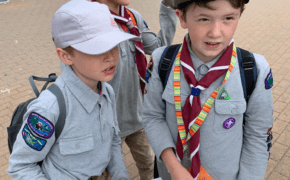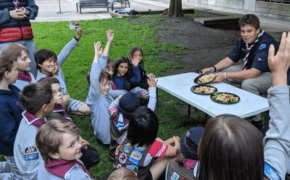The Middle Years – UBC Early Learning
Beavers, Cubs and First year Scouts all fall in this critical category, the middle years. More on how Scouting is relevant in “The Cub Aged Youth Today”. Here’s what UBC (University of British Columbia) Early Learning has to say about the middle years.
Why are the middle years important?
Experiences in the middle years, ages 6 to 12, have critical and long lasting effects. They are a powerful predictors of adolescent adjustment and future success. During this time children undergo important cognitive, social, and emotional changes that establish their lifelong identity and set the stage for adolescence and adulthood.
A child’s overall health and well-being affects their ability to concentrate and learn, develop and maintain friendships, and make thoughtful decisions. It is important to understand and have information on how children are doing at this stage of their development.
What is the Middle Years Development Instrument (MDI)?
The Middle Years Development Instrument (MDI) is a self-report questionnaire completed by children in Grade 4 and Grade 7. It asks them how they think and feel about their experiences both inside and outside of school. The Grade 4 questionnaire and the Grade 7 questionnaire both include questions related to the five areas of development that are strongly linked to well-being, health and academic achievement.
Physical Health & Well-Being
Children evaluate their own physical well-being in the areas of overall health including body image, nutrition and sleeping habits.
Connectedness
Children are asked about their experiences of support and connection with the adults in their schools and neighbourhoods, with their parents or guardians at home, and with their peers.
Social and Emotional Development
Children respond to questions about their current social and emotional functioning in 7 areas: optimism, self-esteem, happiness, empathy, prosocial behaviour, sadness and worries.
School Experiences
Children are asked about their school experiences in 4 areas: academic self-concept, school climate, school belonging, and experiences with peer victimization(bullying).
Use of After-School Time
Children are asked about the time they spend engaged in organized activities such as sports, music and art, as well as the time they spend watching TV, doing homework and playing video games.
Source: UBC, Early Learning




